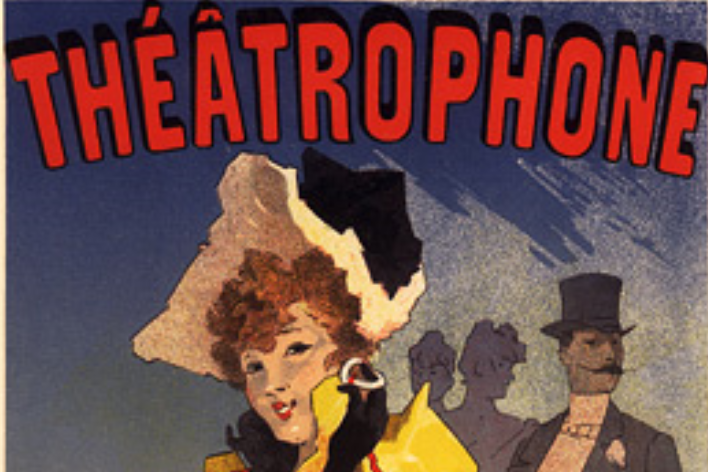National | Globalnews.ca: We’ve long taken the ability to summon up audio entertainment on demand, be it through radio, CDs, tapes, and records, or via the internet. But the first method of transmitting audio into private homes has been completely forgotten.
Long before voices and music were transmitted through the air — and even before people owned phonographs and records — the well-to-do in cities like Paris, Lisbon, Brussels, Stockholm, London, and even New York were able to listen to music and theatre productions without having to go anywhere. And in stereo, too.

3 comments:
I just think it’s funny to think of a telephone like operator, but instead of getting connected to another telephone line, you can get patched in and out to different theatrical and musical experiences around the city. The thought of workers running telephone lines through the sewer makes me think about the commitment to bringing people the arts was. I guess it was their modern day Pandora, or Netflix. Although, when they were talking about how a standard was to pay the fee and get ten minutes of listening time - ten minutes doesn’t seem very long. Also were there snacks for sale? It can’t be entirely too comfortable listening to a Bizet opera for hours just staring at like a wall ahead of you. While I can’t see the Théâtrophone being used today, I do think that it was that type of innovation that planted the seed of what radio technology could do in terms of bringing experiences to remote patrons.
I think this article was really interesting because I had no idea that this Théâtrophone ever existed. I think it is a really cool idea that you could pay some set fee and call a number and just get to listen to whatever was happening at that theatre or concert hall. It is really the idea of remote theatre but from such a long time ago. Reading this article I just kept thinking about the idea of live-streamed theatre and how that is becoming so much more widespread during this pandemic and how that idea isn’t new, that is essentially what was going on with this Théâtrophone. Like Elizabeth, I think the image of operators running this system through the Paris sewer system is very interesting and a little silly to think about, but wow it showed how much people wanted this technology and what they were willing to do for it.
I was glad to find this article since I think that while it is important to grasp how the technologies are being developed and changing these days, it is also crucial to know their history. As much as present, it is essential to be aware of how we got here - how the technological equipments have improved from the past to fully comprehend the flow. As many people often emphasizes the importance of learning history, I think that applies to theatrical fields as well. I know how theater looked like a few decades ago, but it was my first time to actually ponder upon how people would have operated and ran the shows. I cannot even imagine how inconvenient it would have been before Clement Adler came up with he idea for proto-headphones. It was interesting to read how theatrical equipments have developed (even including the budgets). It is sad that Théâtrophone ended up closing, I appreciate them and hope more people gets informed of their legacy.
Post a Comment